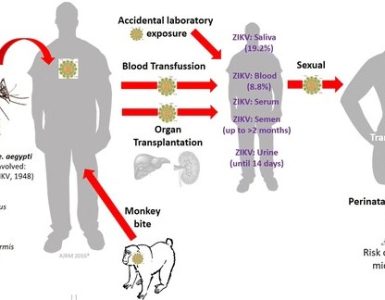 Saudi Arabian health authorities are failing to proactively contain the Middle East Respiratory Syndrome (MERS), leading to increased fears of a global outbreak similar to SARS five years ago, an Australian virologist has claimed.
Saudi Arabian health authorities are failing to proactively contain the Middle East Respiratory Syndrome (MERS), leading to increased fears of a global outbreak similar to SARS five years ago, an Australian virologist has claimed.
Fears are rising of an uncontainable outbreak of the deadly virus following two more deaths in Saudi Arabia and the discovery of an infected passenger on board an Etihad flight to the Philippines.
More than 20 people, many of them health-care workers, have been reported infected with MERS in Saudi Arabia and the UAE in the past week, while the disease also has spread to Asia for the first time, with the death of a Malaysian man after he returned from a pilgrimage in Saudi Arabia on March 29.
All passengers and crew on board a flight from Abu Dhabi to Manila last week were urged to be tested for MERS after a passenger was diagnosed with the deadly virus. While no one else has so far been diagnosed, the 418 passengers are still within a two-week incubation period.
The UAE reported to the World Health Organization last week that 10 health care workers had been infected, although they were in a stable condition. All ten were linked to a Filipino paramedic who died in the UAE on April 10.
The two latest people to die were foreigners in Jeddah, where Saudi health authorities last week said 11 people were infected, some of them health care workers.
Officials earlier this month had taken the extraordinary step of closing the King Fahd Hospital emergency department to thoroughly clean it after an infected worker died.
In a statement last Wednesday, the Saudi Health Ministry said 37 cases of the virus – including 7 fatalities – had been detected at five hospitals in Jeddah between March 15 and April 15.
Authorities fear human-to-human infection is increasing and the higher death rate has some health experts concerned the deadly virus is becoming increasingly difficult to contain.
“It is always a worry if sustained human-to-human transmission of a newly identified virus occurs,” Ian Mackay, a virologist affiliated with the Australian Infectious Diseases Research Center at the University of Queensland, told Associated Press.
“We can only hope that the current hot zone, the Kingdom of Saudi Arabia, soon gets ahead of the outbreak through proactive action.
“It seems that infection prevention and control has broken down in these health care outbreaks and this will need to be addressed throughout the region.”
Filipino health authorities also are increasingly concerned about the virus spreading there, with a significant number of its citizens working in the Gulf and potentially carrying the disease when they travel home.
It has boosted screening for the virus at airports.
“It is important that families, friends and members of their local communities fully understand all that must be known about the MERS coronavirus,” Filippino Health Secretary Enrique Ona said on Saturday.
MERS can cause symptoms such as fever, breathing problems, pneumonia and kidney failure.
It was first detected in Saudi Arabia in September, 2012.
While it has not spread as fast as SARS, it has been more deadly. According to the World Health Organization, 92 of the 238 people confirmed to have been infected with MERS have died.
Source: ArabianBusiness.com

















